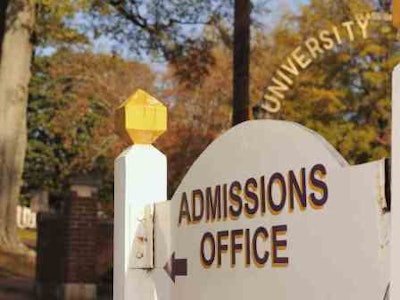
The scholarship program seems to encourage higher than expected college enrollment and continued college attendance, according to a report by The BERC Group, which was hired by College Spark Washington and the Bill & Melinda Gates Foundation to assess the effectiveness of the program. The program only requires low-income students to sign a pledge to stay in school, keep their high school grade point average at 2.0 or above, and stay out of trouble. Students get the scholarship if they meet those requirements and the low-income threshold when they graduate.
The researchers could not yet be certain, however, if this trend will continue or if it could be caused in part by other factors, because they were only studying the first group of students to use scholarships from the program. They looked at students at 55 high schools across the state.
Washington middle school students who are eligible for free- or reduced-price lunch are invited to sign up for the College Bound scholarship program before high school.
The study found 73 percent of students in the class of 2012 who enrolled in the College Bound program in middle school went to college after high school. College attendance for students who did not qualify for free- and-reduced-price lunch is 78 percent. About 60 percent of low-income students who didn’t sign up for College Bound went to college.
A high school program that helps students make sure they are taking the right classes and doing other things to prepare for college, Navigation 101, also was found to have a strong influence on college attendance. And when College Bound students also benefited from Navigation 101, their college enrollment numbers were even higher.
College Spark Washington, which supports both programs, was enthusiastic about the results.














